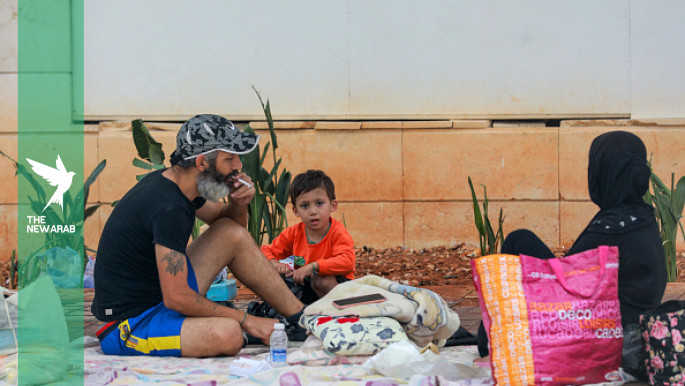Lebanon’s Hezbollah is preparing for a possible new war with Israel as pressure mounts on the group to disarm under a fragile ceasefire deal repeatedly violated by Israeli forces.
Lebanese daily Nidaa al-Watan reported this week that Hezbollah had begun delivering aid and supplies to Shia-majority villages in northern Lebanon, potentially to accommodate a new wave of displaced families should fighting resume.
Hezbollah and Israel clashed for over a year, including two months of all-out war that ended with a US-brokered ceasefire on 27 November. Most Israeli attacks targeted Hezbollah strongholds in southern Lebanon, Beirut’s southern suburbs, and the Beqaa Valley, forcing thousands to flee to safer areas such as the capital, Mount Lebanon and the north.
Many displaced families took shelter in schools, places of worship, community halls and even nightlife venues, while others camped in the streets. Hezbollah faced criticism, even from its supporters, for failing to prepare bunkers or shelters before the conflict. Critics blame the group for dragging Lebanon into war unilaterally.
The war left Hezbollah militarily and politically weakened. Under the ceasefire agreement, Hezbollah is required to hand over its weapons to the Lebanese state, which has pledged to be the sole legal authority holding arms.
In return, Israel is expected to withdraw entirely from southern Lebanon and halt attacks, something it has so far refused to do, maintaining positions in at least five locations along the border.
Israel has vowed to keep Hezbollah weakened, claiming near-daily drone strikes on its fighters and infrastructure. On Friday, Hezbollah mourned several fighters killed in Israeli airstrikes.
Despite weeks of US-led mediation, no breakthrough has been reached. Hezbollah says it will not disarm unless Israel withdraws, halts its attacks, releases Lebanese prisoners, and reconstruction of war-torn areas begins. US envoy Tom Barrack recently said Washington could not guarantee Israel would stop its strikes.
The Lebanese cabinet is due to meet next week to discuss Hezbollah’s disarmament, despite the group’s rejection of the proposal.
War preparations?
With Lebanon still reeling from last year’s war and economic collapse, fears of another large-scale conflict are growing. Southern villages have been devastated, and civilian casualties continue even under the ceasefire.
The Lebanese government places the death toll at 4,000, while Reuters previously reported that Hezbollah may have suffered around that number in its ranks alone.
Since the ceasefire, Israeli strikes have continued to kill civilians. Hezbollah rarely acknowledges casualties.
According to Nidaa al-Watan, the group has started delivering aid, including mattresses, blankets, and medicine, to villages in the north that could receive future IDPs. Eyewitnesses reported dozens of trucks transporting supplies to warehouses in Akkar and other districts.
Hezbollah also reportedly approached mayors in Akkar to open potential shelters, but the request was turned down. Sunni-led municipalities insisted any decision should wait until an actual emergency. Alawite-majority villages said they were already overwhelmed by Syrian refugees fleeing sectarian violence in coastal Syria.
Sources cited by Nidaa al-Watan said Hezbollah has prepared at least four logistics warehouses in Akkar, Minieh, Batroun, and Jbeil – some of which were previously used during the last war.
The group has also formed a secret operations unit led by Hassan al-Meqdad, Hezbollah’s public relations head in Mount Lebanon and the north, according to the report. The operations room includes party officials and affiliated religious figures.
There are fears the new shelters could be targeted by Israeli drones. During last year’s conflict, Israeli strikes on residential buildings believed to house Hezbollah members led to mass civilian deaths.
In one of the deadliest incidents, 22 people were killed when Israel struck a building in the Christian village of Aitou, targeting an alleged Hezbollah operative.
In Ain Delb, southern Lebanon, 73 were killed in a single strike, and in the Druze village of Baadaran, an entire family and several displaced southerners died in another Israeli raid.
“Residents in the north fear hosting the displaced for several reasons,” Nidaa al-Watan reported. “Most importantly the possibility of Israel targeting them in their place of residence”.
An earlier report from the Saudi-owned Al Hadath TV said Hezbollah had also begun distributing unspecified “equipment” to villages in southern Lebanon in preparation for renewed conflict.


